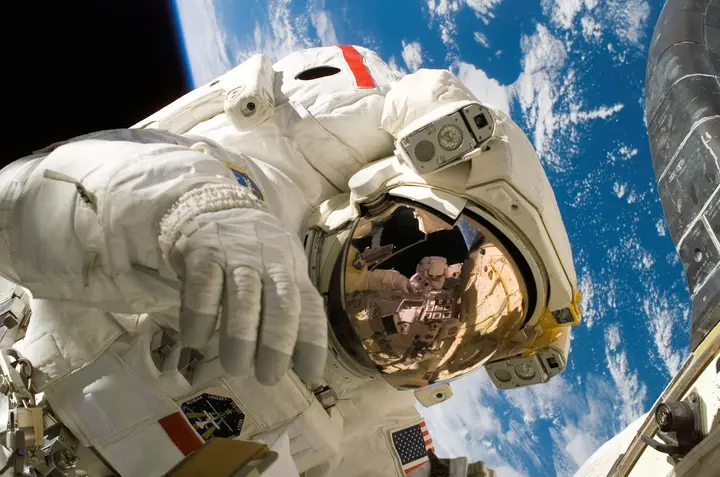The Unseen Universe Within: The Epic Tale of Your Inner Ecosystem
Posted by: sunxin in Science 3 months, 2 weeks ago
You are more than just a person; you are a planet, a vast entity composed of approximately 40 trillion cells. If these cells were the size of humans, your body would tower as high as 20 Mount Everests. This sprawling, intricate landscape is home to a myriad of microorganisms, each vying for resources and space within the warm, abundant ecosystem that is your body.
The Climate Conundrum of Our plates: Is Meat Really the Culprit?
Posted by: sunxin in Science 3 months, 2 weeks ago
Is there anything more comforting than the scent of a steak sizzling on the grill or the warmth of a bowl of creamy risotto? Food, in its myriad forms, is not just sustenance—it's a celebration of life. Yet, nestled within the succulence of our favorite meals lies a challenge that's hard to digest: the impact of our diet on climate change. Let's dive into the heart of this issue and explore the question that's been cooking up debate: Does what we eat truly matter to our planet's health?
Unveiling the Complexity: The Art of Simplifying Science
Posted by: sunxin in Science 3 months, 2 weeks ago
Have you ever watched a Kurzgesagt video and felt the satisfaction of understanding a complex concept in just ten minutes? There's a catch—those videos, as they themselves admit, are built on a foundation of "lies to children." But don't be alarmed; it's a strategic simplification, a necessary evil in the quest to make science accessible to the masses.
The Great Silence: The Paradox of the Empty Cosmos
Posted by: sunxin in Science 3 months, 2 weeks ago
In the vast expanse of the universe, with its countless habitable planets, one would expect the signs of advanced civilizations to be as numerous as the stars. Yet, we encounter a silence so profound it's named the Fermi Paradox. Why, in a cosmos so ripe with potential, do we see no evidence of alien life? This mystery beckons us to explore the depths of our cosmic solitude and the possible perils it holds.
The Cosmic Collision: What If the Moon Crashed into Earth?
Posted by: sunxin in Science 3 months, 2 weeks ago
Have you ever pondered the age-old scientific query: What if the moon suddenly veered off its path and plummeted into Earth? The scenario is both fascinating and terrifying, defying the very laws of physics we've come to understand. Let's delve into this hypothetical disaster and explore the ramifications of such a catastrophic event.
The Hidden Chapters of Earth's History: Tracing the Footprints of Ancient Civilizations
Posted by: sunxin in Science 3 months, 2 weeks ago
Have you ever gazed upon the stars, pondering the possibility of alien life in distant galaxies? While we often look to the cosmos for answers, there's an equally intriguing question that lies beneath our feet: Could ancient alien civilizations have thrived on Earth long before humans walked its surface?
The Fight Against Climate Change: A Glimmer of Hope Amidst the Doom
Posted by: sunxin in Science 3 months, 2 weeks ago
Our planet is on fire, and the flames of climate change are burning brighter with each passing day. The narrative painted by the media and certain factions is one of impending doom, a future where our world is beyond saving. But is this truly the case? What does science say about our chances? Let's delve into the heart of this pressing issue and explore the hidden shift that offers a glimmer of hope.
The Silent Terror: Naegleria Fowleri's 战栗 Approach to the Human Brain
Posted by: sunxin in Science 3 months, 2 weeks ago
Have you ever pondered the unseen battles raging within the microscopic world? A war has been waging for billions of years, involving well-armed monsters that fight for survival. Most of these microscopic warriors are indifferent to us, harmless as our immune systems effortlessly counter their attacks. Yet, there are exceptions, and Naegleria fowleri is one such exception, a deadly amoeba with a taste for human brains.
The Elusive Concept of 'Here': Understanding Our Place in the Cosmos
Posted by: sunxin in Science 3 months, 2 weeks ago
Have you ever pondered where you are in the grand tapestry of the universe? It's a question that might seem straightforward, yet the more we delve into it, the more complex and intriguing it becomes. Let's embark on a journey through the cosmos, peeling back layers of our understanding to uncover the true nature of 'here.'
Unlocking the Secrets to Habit Formation: Your Path to Self-Improvement
Posted by: sunxin in Science 3 months, 2 weeks ago
Are you tired of feeling like you're not living up to your potential? Do you constantly strive to be a better version of yourself, only to fall back into old habits time and again? You're not alone. Many of us grapple with the gap between who we are and who we wish to be. But fear not, for the key to self-improvement lies in understanding the science of habit formation.
Recent Posts
- Tragedy Unfolds: The Heartbreaking Attack at Mogadishu's Leo Beach
- Clash in Liverpool: The Battle Between Anti-Racism and Anti-Immigration
- Tragedy Unfolds: Kerala's Heartbreaking Battle with Landslides
- Tragedy in Tarim: A Glimpse into the Aftermath of Israeli Aerial Strikes
- The Tragic Attack on Hamama School: A Story of Innocence Lost in Shik Radwan
Categories
- Official Announcement (3)
- News (1653)
- 新闻 (28)
- Technology (300)
- 科技 (235)
- 科普 (418)
- Science (409)
- 公开课 (180)
- MOOC (183)
- Business (36)
- 揭秘 (143)
- Mysteries (124)



